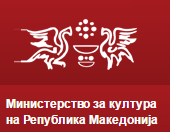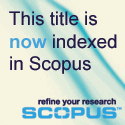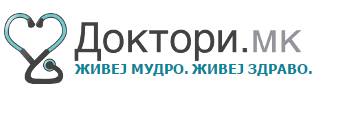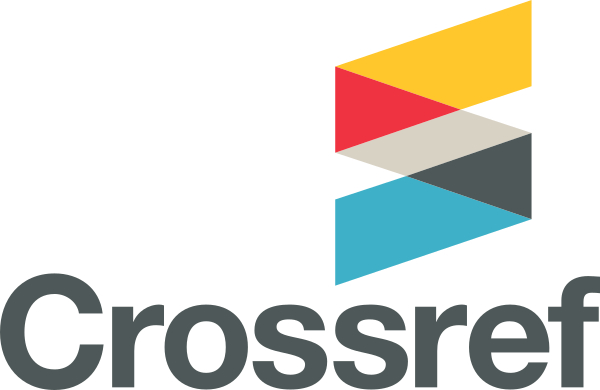|
На 24 ноември 2011 година во просториите на хотелот Континентал се одржа Првата македонска конференција за Prader-Willi-синдром со наслов „Вовед во синдромот и развој на мрежа“. Конференцијата беше во организација на Здружението на педијатрите на Македонија во коорганизација и соработка со добротворната фондација „Wittekindshof“ и Интернационалната организација за Prader-Willi-синдромот.
На Конференцијата присуствуваа предавачи од Германија, Италија и Македонија.
За време на официјалното отворање на Конференцијата свои воведни обраќања имаа Александар Сајковски од Здружението на педијатрите на Македонија, Елена Шукарова-Ангеловска и Norbert Hodebeck-Stuntebeck од Германија - член од здравствениот систем. Во рамките на своите обраќања, говорниците им се заблагодарија на присутните за големата посетеност и го истакнаа значењето на мултидисциплинарниот пристап кон овој проблем, формирањето на мапа на личностите со Prader-Willi-синдромот и градење на мрежа.
По воведните обраќања следуваа предавања со различни и актуелни теми кои ја третираат проблематиката на Prader-Willi синдромот.
Низ своето предавање „Вовед во синдромот на Prader-Willi“ Hubert Soyer од Германија ги запозна присутните со поставување дијагноза Prader-Willi и со бихејвиоралните карактеристики кои ги имаат овие лица. Елена Шукарова-Ангеловска од Македонија настапи со своето излагање „Генетика на синдромот на Prader-Willi“, бидејќи генетиката е во основата на овој синдром. Делецијата на татковиот 15-ти хромозом, која е најчеста причина за настанување на овој синдром, се докажува со обично кариотипизирање и FISH-метода.
Свои предавања имаа и Мирјана Кочова и Снежана Палчевска од Македонија на тема „Ендокринолошки аспекти на PWS“ преку кои ги истакнаа метаболните и ендокринолошките аспекти на овој синдром. Најголемиот број на метаболни нарушувања се последица на дисфункцијата во хипоталамусот, што е и во основата на оваа болест, нарушување на чувството за ситост. Ова доведува до компулсивно јадење. За тоа каква медицинска помош им е потребна на овие лица, беа дадени следниве препораки: менаџмент на лошата исхрана, евалуација на хипогонадизмот, менаџмент на дебелината, мониторинг на сколиозата и третман со хормонот за раст.
Constanze Lammer од Германија низ своето предавање „Нутрициона поддршка на децата со PWS“ ни презентираше практични примери од работата со деца кои го имаат овој синдром. Работеле на развивање на концепт за менаџирање на исхраната. Нагласи дека процесот не бил скап, но периодот на менување на животниот стил на тоа семејство е долг.
Norbert Hodebeck-Stuntebeck од Германија ја презентираше својата тема „Бихејвиорална терапија на деца со PW“. На почетокот од презентацијата нагласи дека во однесувањето на едно дете со Prader-Willi-синдром, веднаш треба да се определи дали одредено бихејвиорално однесување е со мал или висок ризик и според тоа да се најде начин како да се реагира. За менаџирање на нивното однесување потребно е да се направи распоред за којшто треба сите да се придржуваат.
Giorgio Fornasier од Италија со својата презентација „Преглед на активностите на Интернационалната организација за Prader-Willi-Syndrome“ нè информираше дека Организацијата нуди дијагноза, рана интервенција, третман, едукација, информации, правни совети, а воедно и организира интернационални и регионални конференции. Овозможува бесплатна дијагноза во земји каде што тестирањето не е достапно. Од 2003 година, над 300 дијагнози се воспоставени во 32 земји. Имаат 96 земји членки на оваа организација, меѓу кои е и Македонија.
Последното предавање „Дали подолго е и подобро?“ од Александар Сајковски – Македонија, се однесуваше на антибиотскиот приод на емпириската терапија. Се презентираа разликите кои постојат помеѓу вирусните и бактериските инфекции и зошто антибиотиците не делуваат на вирусните инфекции.
Освен пленарните предавања беа организирани и три работилници, од кои присутните можеа да одберат две на кои учествуваа.
|
|
The First Macedonian conference regarding the Prader-Willi Syndrome with the title “Introduction into the syndrome and the network development” was held on the 24th of November 2011, in the premises of hotel Continental. The conference was organized by the Association of pediatricians in Macedonia in co-organization and cooperation with the charity foundation „Wittekindshof„ and the International Prader-Willi Syndrome Organization.
Numerous lecturers from Germany, Italy and Macedonia took active participation at this symposium. The introduction speeches of the official opening were made by Aleksandar Sajkovski, a member of the Association of pediatricians in Macedonia, Elena Shukarova-Angelovska and Norbert Hodebeck-Stuntebeck from Germany - a member of the German healthcare system. In the frame of their speeche, the experts thanked the guests for their numerous presences and emphasized the meaning of the multi-disciplinary approach towards this problem, the creation of a map of the persons with Prader-Willi Syndrome and building a network.
After the introduction speeches, followed lectures with various contemporary themes, dealing with the Prader-Willi Syndrome.
Hubert Soyer from Germany spoke about the “Introduction in the Prader-Wili syndrome”, giving a chance to the participants to inform themselves with the process of diagnosing the Prader-Willi Syndrome and the behavioral characteristics that the people suffering from this syndrome manifest. Elena Shukarova-Angelovska from Macedonia elaborated on the topic “The Genetics of the Prader-Willi Syndrome”, especially because the genetics are the basis for the occurrence of this syndrome. The deletion of the father’s 15th chromosome, which is the most common reason for the occurrence of this syndrome, can be proven by a common karyo-typization and a FISH method.
Mirjana Kochova and Snezhana Palchevska from Macedonia held lectures regarding the “Endocrinological aspects of the PWS” through which they have emphasized the metabolic and the endocrinological aspects of the syndrome. The greatest number of metabolic disorders appears due to a dysfunction of the hypothalamus, which is also in the grounds of this condition and the distortion of the feeling for satiety. This leads to compulsive overeating. Regarding the kind of medical help that these persons would need, the experts have enumerated the following recommendations: management of bad nutrition, evaluation of hypogonadism, management of obesity, monitoring of scoliosis and treatment with the growth-hormone.
Constanze Lammer from Germany spoke about the “Nutritional support of children with PWS” and presented some practical examples from the work with children that have this syndrome. The experts in Germany worked on the development of a concept for management of nutrition. She emphasized that the process was not expensive, but the period of changes of the family’s lifestyle was long.
Norbert Hodebeck-Stuntebeck from Germany spoke in regards to the “Behavioral therapy of children with PWS”. At the beginning of the presentation, he emphasized that in regards to the attitude of a child with Prader-Willi Syndrome, there should be immediate determination whether a certain behavioral attitude is with a small or high risk and based on the outcome, proper solution should be applied. For the management of the children’s attitude, it is necessary to prepare a schedule and all of them should apply the same plan.
Giorgio Fornasier from Italy presented the “Review of the activities at the International Prader-Willi Syndrome Organization”. The organization offers diagnose and early intervention, treatment, education, information, legal advices and in the same time organizes international and regional conferences. It also enables free diagnose in the countries where the testing is not available. From 2003, over 300 diagnoses were posed in 32 countries. The organization has 96 member-countries and Macedonia is one of them.
The last lecture was regarding the Antibiotic approach to an empirical therapy “Is longer also better?” by Aleksandar Sajkovski from Macedonia. It was a presentation concerning the differences that are present between the viral and bacterial infections and the reason the antibiotics do not affect the viral infections.
Along the plenary lectures three workshops were organized, from which the participants could choose where to engage.
|
 SNIP 0.059
SNIP 0.059 IPP 0.07
IPP 0.07 SJR 0.13
SJR 0.13 h5-index 7
h5-index 7 Google-based impact factor: 0.68
Google-based impact factor: 0.68















